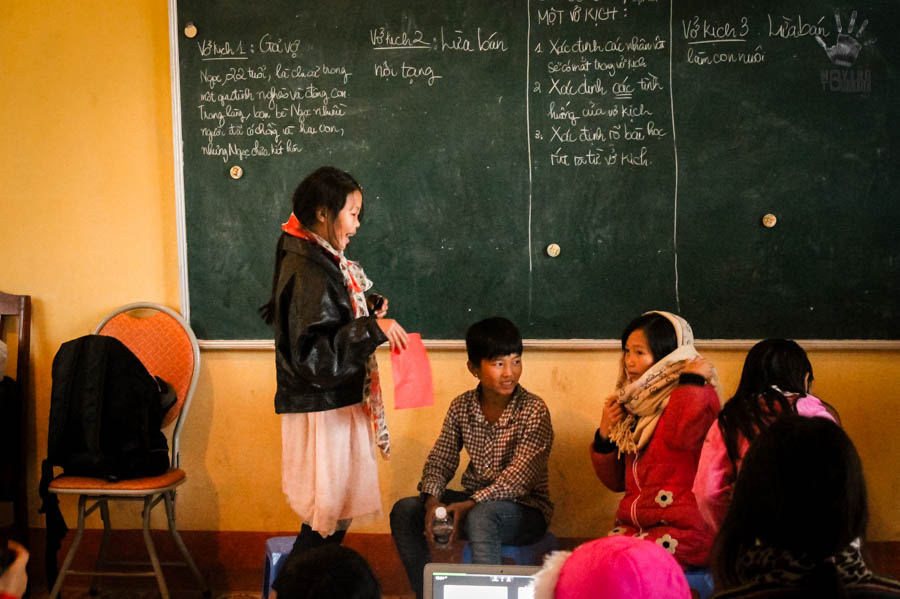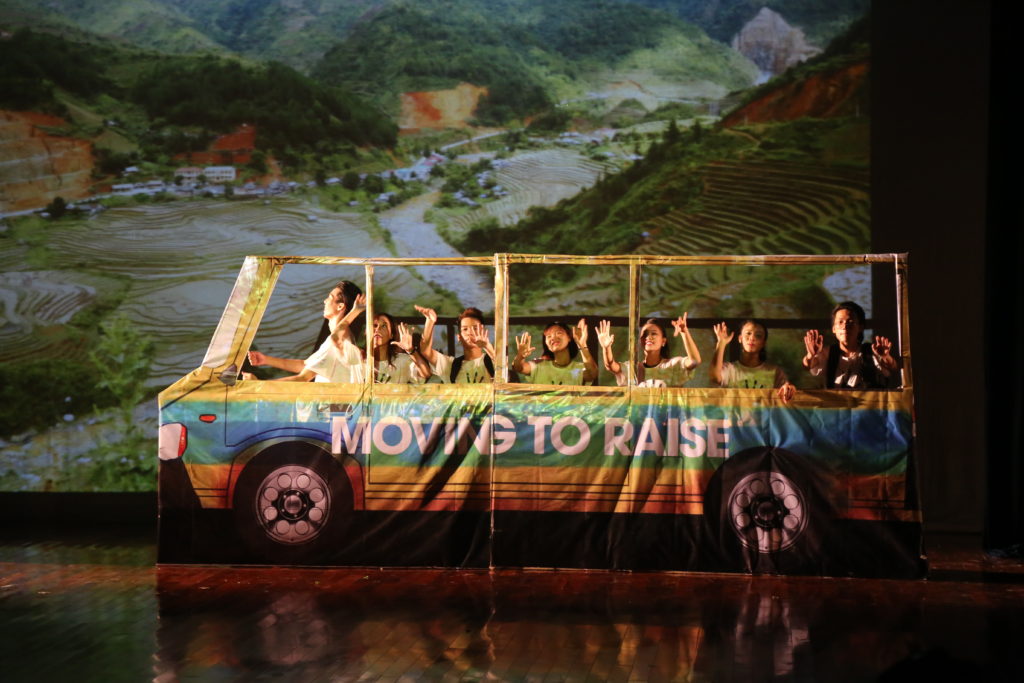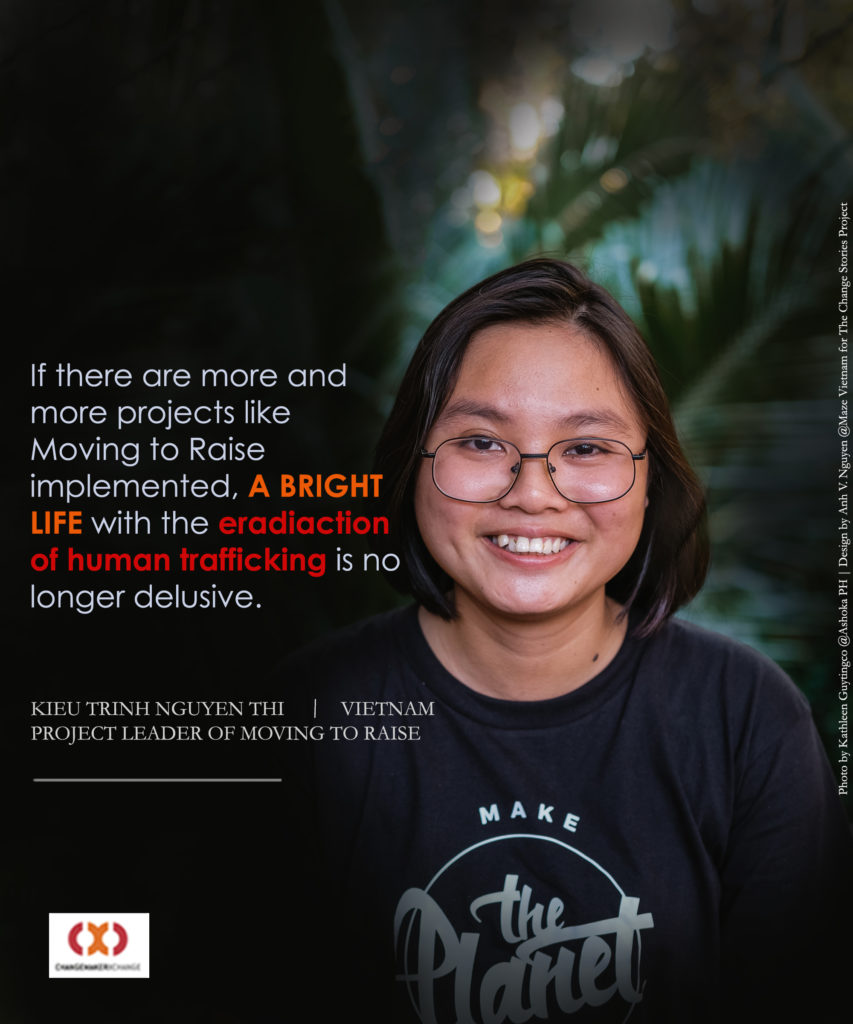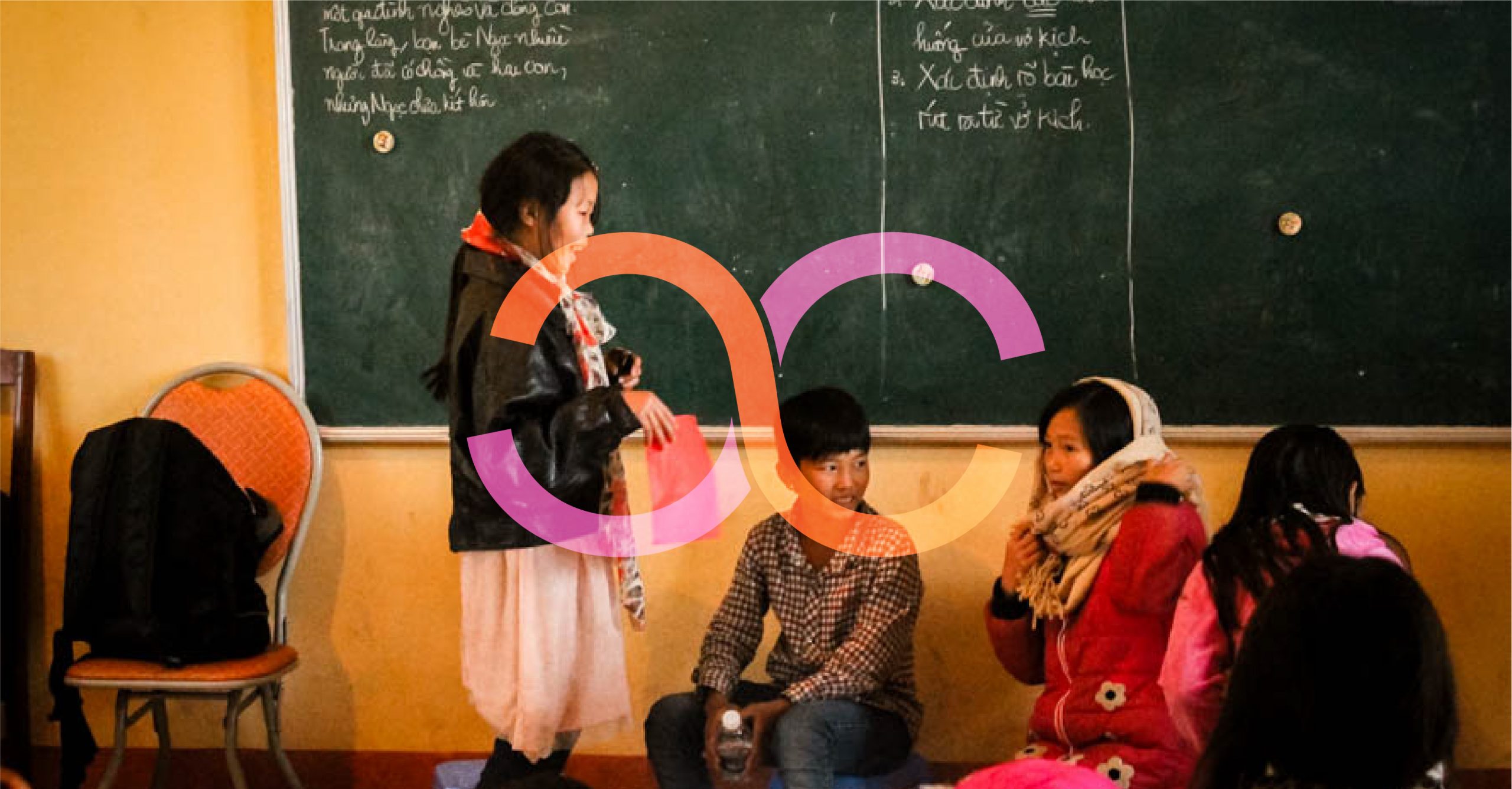In 1948, the first international human rights’ instrument – “The Universal Declaration of Human rights” was adopted. It states that “All human beings are born equal in dignity and rights and it prohibits slavery in all its forms”. However, until the 21st century, trafficking in human beings still exists as one of the most grievous problems in the world, especially in developing countries like Vietnam.
According to the statistics the Steering Committee for Crime Prevention and Combat, in Vietnam, during 2011- 2016, there were nearly 2380 cases of human trafficking with more than 4928 victims. Therein, more than 85% of them are women and children. In addition, the targets of trafficking in human beings are normally women between 18-35 years old or teenagers living in the countryside, mountainous area or near the border. Their impecunious conditions trigger many serious issues such as unemployment, low educational level, lack of knowledge and career orientation. Moreover, child trafficking victims are usually homeless children with a dearth of care, education, and family’s management or children being abandoned, kidnapped and lured into the trafficker’s trap. All in all, it is clear to see that incomprehensive awareness is the main weakness that traffickers use to take advantage of local people. Although human trafficking has been an excessively urgent problem in Vietnam for many years, Vietnamese government still lacks official programs to educate people. Combining with the drawback of a low educational level, there is no likelihood that people in these areas can fully comprehend the dreadful threat, which is really close to them. As a result, the establishment of an innovative and practical project to deal with this problem becomes urgent than ever before.
Acknowledging the urgency of educating people about human trafficking and how to avoid it, a project named “Moving to raise” has been launched by Sustainable Development Club (SDC) to fulfill those needs. Ms. Trinh Kieu Thi Nguy is the leader of this project. Currently, she is a student of The Diplomatic Academy of Vietnam, majoring in English for International Relations. Trinh’s story commences with a project called “Humanitour” – a charity tour organized by SDC in 2011 to mountainous areas. Albeit the fact that human trafficking has no longer been a strange problem to anyone in these places, everyone was very surprised when they realized that people in these regions were very indifferent about severe consequences they might have to tackle. While the number of human trafficking victims keeps augmenting every year and traffickers’ trick becomes more and more sophisticated, people, especially those who live near the border are still not aware of the terrifying threat that is really close to them. Therefore, to deal with this problem, SDC decided to implement a project to enhance social awareness about human trafficking. The project has officially been launched since 2015 after receiving sponsorship from YSEALI. M2R carries out a mission to build a fully- equipped community that is strong enough to fight against trafficking in human beings.

The target of the M2R project is secondary students. Principally, the project concentrates on ninth-grade students as at that moment, they will face up with two essential choices: moving on to high school or putting the end to an academic path to go to work. The first selection seems to be optimal, however, you should notice that these children live in the mountainous area. Therefore, their high school will be far away from their home. Moreover, due to their family’s condition, they cannot even afford their daily needs not to mention tuition fee. Nonetheless, if they choose to abandon schools for labor export, at the age of 15, they will easily fall into the trap of traffickers.

Talking about the implementing format of “Moving to raise” in each school, they would organize two camps. The first camp, which was held three months before the second one focuses on delivering comprehensive knowledge about human trafficking for students. While during the second camp, students had the chance to participate in practical anti-human trafficking activities in order to be prepared with many useful skills such as safe immigration, self- defense, community reintegration, etc. Unlike other programs that only deliver messages through theoretical words, all M2R activities were highly interactive. To encourage the attendance of their main targets, which are secondary students in mountainous areas, Trinh and her team have come up with many lively and creative activities such as interactive plays, movie sessions, group discussions, group works, drawing competition, and knowledge ringing the golden bell game. Being involved in many stimulating cases, students in these schools would understand more thoroughly about its severely dangerous threat. Moreover, through multiple realistic lessons, they also gained the opportunity to learn several ways to avoid and combat in case they face this issue.
However, the process to turn this project into reality was not easy as pie, M2R members had to face up to a number of difficulties. At first, one of the camps was piloted in 2014 and they had not received official fund yet, so the project’s scope was very limited. Even after they excellently received the sponsorship from “Seeds for the future” of YSEALI, M2R still retained many drawbacks such as working with the local community as human trafficking is a significantly sensitive topic. Combing with the fact that this project was sponsored by an international fund, M2R was examined very carefully by the administration. For Trinh, this was the first time she had ever been a leader in a project and this made her a bit worried as she knew she would have a thousand things and responsibilities to bear in mind. She was afraid that she would not be able to accomplish the tasks as everyone expected. Nevertheless, leaving those worries behind, Trinh valuated this as an opportunity for her to explore her own capability and gain leadership skills. Despite all the difficulties they have been through, what Trinh wanted to express most is that she was very lucky to have such enthusiastic members as well as volunteers in this project to turn the lessons for children in these areas become more lively and interesting. She still remembered her first camp, which coincidentally happened to be her birthday, after a guy in her team shouted out “Today is Trinh’s birthday”, 500 secondary students in Yen Bai together with M2R members sang a “Happy birthday” song for her. That must be one of the most memorable moments in her trips.
From October 2015 till June 2016, M2R had brought their amazing ideas to three schools Lao Chai – Yen Bai, A Lu, and Ngai Thau – Lao Cai, which were hotspots of human trafficking. During that period, they organized six camps for more than 1000 secondary students as well as local people to address this dangerous problem. Concurrently, they also supported fundamental things such as food, clothes, and other school supplies for students. Furthermore, after their camps, M2R collected a significant amount of information to build a sufficient database in order to bring all knowledge to everyone in our society.
Not only organizing camps in schools but “Moving to Raise” also held up a massive event in Hanoi comprising of a play called “H’lub – When we love them” and a sequence of sub-events such as exhibition, musical night and much more In Hmong language, “H’lub” in Hmong language means love. Therefore, through this play, the organizing team hoped to deliver their message, which was full of sympathy, humanity, and love to human trafficking victims, who have been trampled and tortured both physically and mentally by those cruel crimes. Accompanied by nearly 400 people attending, many victims or we should call them by a better name – our survivors, street children also involved in this event. The play was written based on a true story that Trinh’s team had got the chance to listen to. During a camp, they met a little girl, who was a “survivor” after being sold and captured in China since she was five years old. Notwithstanding the fact that she has come back home to her family, nothing could compensate for the pain and loss she had suffered in that “nightmare” period. Her affliction was so substantial that it affected her characteristics and mentality, which made her become very shy when talking to other people. Consequently, for human trafficking victims, being rescued was not enough but they also craved for sympathy, share, and love from the community.

Human trafficking is one of the most considerable problems that requires the concern of every individual in this society as it brings forever torment to the victims. As Trinh shared with us, in the future, she hoped that “Moving to raise” could be expanded not only in scopes to more areas in Vietnam but also to more people in the world. If there are more and more projects like Moving to Raise implemented, a bright life with the eradication of human trafficking is no longer delusive.

Story written by Anh T. M. Chu @Maze Vietnam for The Change Stories Project
Photos shared by Trinh Kieu Thi Nguy @Moving To Raise Project
The Change Stories is a cross-border collaboration project co-created by Maze Vietnam from Vietnam and The Optimist Citizen from India. We cover multi-media stories of the world’s top social innovators in ChangemakerXchange summit with an ultimate mission of inspiring people from across the world to become changemakers, together creating positive changes and making the world a better place
